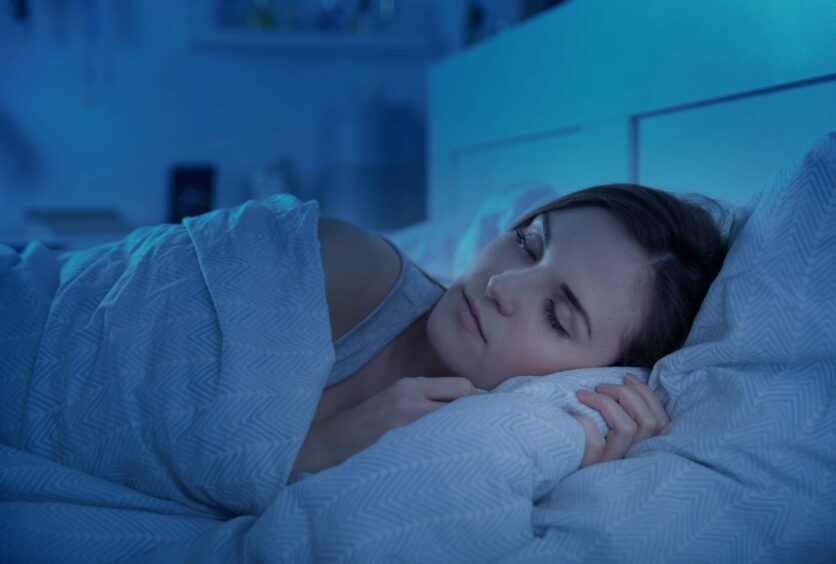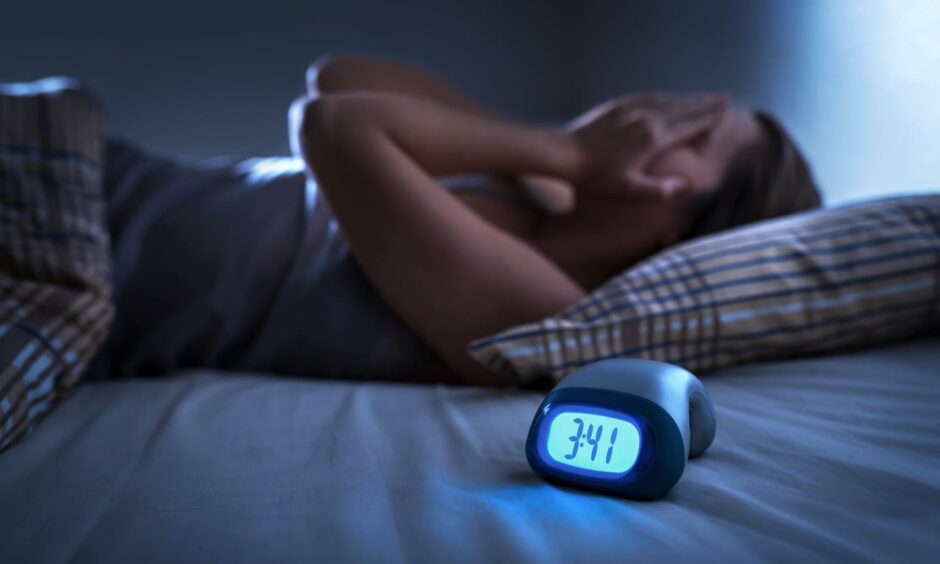If you’re someone who is struggling to sleep, you might wonder if there are simple tips you can try at home tonight.
So as part of our sleep series, we asked Marie Paterson for what she recommends.
Marie, who lives in Fife, runs her own wellbeing business which offers a range of programmes and individual coaching.
It includes a range of online courses including her Positive Paths to Wellbeing programme and a free course on sleep.
Marie started her working life as a secondary school teacher, teaching Biology and Science.
She went on to work for over 16 years at NHS Fife in staff development and training as well as also working as a staff developer for research staff in the University sector.
Then in 2018 she started her own wellbeing business.
Five sleep tips
Her approach is about giving people simple habits to try in their lives right away.
Her sleep course has 30 ideas to try – but what five sleep tips did she recommend you try tonight?
1. Establish a regular sleep routine
Marie explains: “If you have any difficulty with your sleep, either getting off to sleep or staying asleep all night, then getting into a good sleep routine is really important.”
You can do that by sticking to the same bed time and same wake up time.
“It is much harder to sleep well if your schedule is very erratic.
“If you work shifts, this is obviously not easy to achieve, but where possible try to stick to a regular pattern,” she adds.
2. Curb your caffeine
If you’re finding it difficult to get off to sleep changing your coffee or tea to decaf for a while could be an easy swap which can make a difference.
Marie explains: “Many people will say ‘caffeine does not affect my sleep’ and in the next breath say they have trouble sleeping!
“Some lucky people can drink a double espresso at 10pm and be fast asleep at 10.30pm.
“But for many people, caffeine prevents them going to sleep. Remember, there is caffeine in energy drinks and dark chocolate too.
“You can get great tasting decaf alternatives now so you have nothing to lose by trying them.”
3. Avoid alcohol
Marie explains alcohol induced sleep isn’t a natural sleep and is another thing that can affect the amount you get.
“It might help you to nod off, but then you wake up in the middle of the night and this seriously affects the quality of your sleep.
“If you do drink alcohol, don’t have too much and stop drinking a few hours before bedtime.”
4. Make your bedroom a sleep haven
Marie explains that your bedroom needs to be the right temperature, not too hot or cold, with a comfortable mattress and pillows.
It also needs to be dark and quiet.
You can try:
- A mattress topper for an uncomfortable bed
- Ear plugs or an eye mask
- Moving out things that might disturb sleep – your phone or TV.
“Identify what stops you going to sleep or disturbs your sleep in the night and try to get rid of them from the bedroom,” she advises.
5. Enjoy the time awake
It’s easy to be irritated or annoyed that you’re awake in the night.
But Marie says it could be a chance to change your mindset.
“Research has, perhaps surprisingly, shown that trying to stay awake makes you more likely to nod off than actively trying to sleep.
“So the next time you find yourself frustrated at your inability to sleep, snuggle down in your comfy bed, think of something pleasant and enjoy being awake.
“Keep your eyes open and you may just find that your eyelids get heavy and you do nod off.”




Conversation